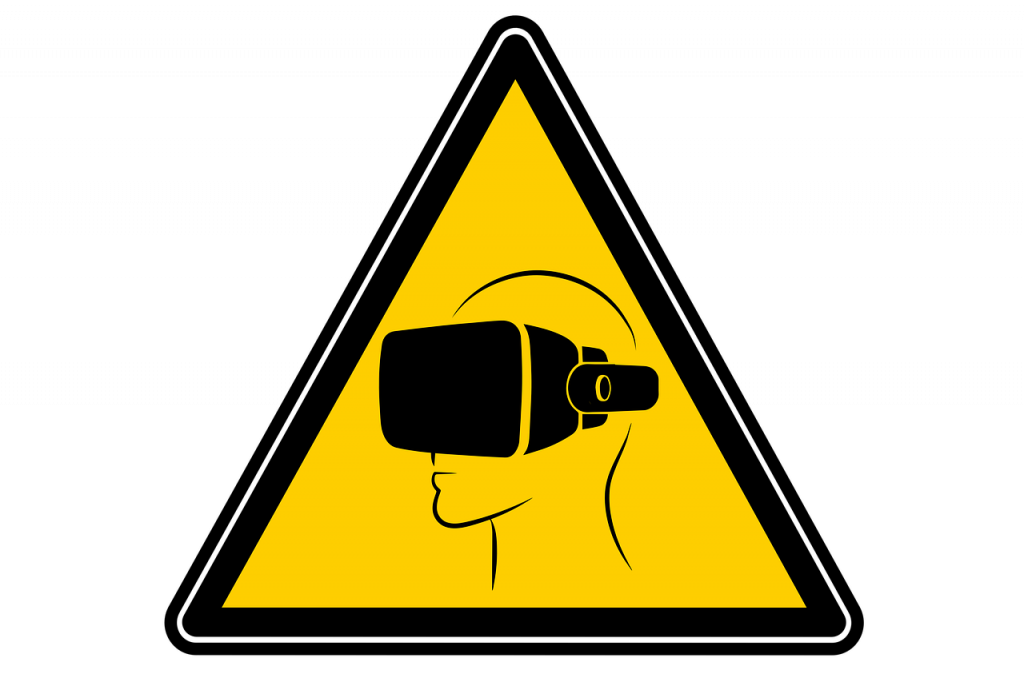
My father was a technology nerd, long before there was such a thing. He got into the refrigeration and appliance business when that was all brand new and shiny. My mother said when they got married in 1951, they had no money, no furniture, but they did have a Crosley TV perched on a cardboard box in the living room.
Over the years, Dad always brought the latest innovation into our house, from the dishwasher that connected to the sink with a hose to the tape recorder with an external handheld microphone. I suppose you could say I was raised to embrace the next new shiny innovation that was invented.
I’ve always considered myself an early digital adopter.
I got my first Mac laptop in the early nineties when we used dial-up modems to access the internet and AOL was the email provider of choice – long before I had a clue that one day I would teach Digital Marketing at NYU.
Getting online in those days required a lot of patience, a virtue I have never mastered very well, but I did embrace this new way to communicate – the beginning of what we called the information superhighway. Luckily for me, I had a good friend at the time who was a coder and helped take the mystery out of everything.
I joined Facebook in 2008 before everybody and their mother did, have had a LinkedIn account since 2007, a Twitter account since 2009, hopped on Instagram and Pinterest as they launched and for a long time considered myself a digital evangelist.
No more. Digital does not need evangelizing.
That is something I’ve written about before. It needs discipline and self-control. A great example is the woman who began a no social media in the morning rule and increased her productivity dramatically – something I am currently experimenting with myself.
I launched a blog on Blogspot in 2008 and while I might have been late to the game when it comes to having my own podcast, I was listening to podcasts long before it was the trendy thing to do.
I even have a TikTok account.
Not that I post content on it, but I do love to consume the content others create.
I still keep up with what’s new but I am much more skeptical about the newest, shiniest piece of technology to enter the market than I was. I’ve learned over time that they don’t all last. Anyone remember Vine or Google+?
I think AR technology has wonderful applications for brands who choose to use it in innovative ways. The ability to try on glasses through a Warby Parker App. is a wonderful experience that enhances e-commerce. All you need is a phone and a well-built App.
However, I’m not as big a fan of Virtual Reality. I’m in 100% agreement with Scott Galloway on this one in that anything that requires me to wear an apparatus over my eyes is just not sexy and not as enticing. I don’t even like having to wear my reading glasses!
Which brings me to the latest in digital innovation. Lately all I keep hearing about is blockchain, NFTs and the Metaverse.
Blockchain technology – the basis for NFTs – makes sense – despite the fact that 42% of the public has no idea what an NFT is. I’ve seen some interesting applications for brands – think Julian Lennon auctioning an NFT of Paul McCarthy’s original notes when writing Hey Jude – not the hat Melania Trump wore to France.
But the Metaverse, the metaverse, the metaverse.
The metaverse is where I draw the line.
I do not want to live in a Metaverse.
I did not particularly like living in the confines of my apartment in the height of the pandemic.
Call me crazy, but I like real-life. I like being in the company of other humans. I like person to person hugs and intimacy, the sounds of laughter, the smell of lilacs blooming in the spring and the grass after the rain and the impromptu joy of talking to the stranger at the next table and sharing a spontaneous moment.
I am not interested in living inside of a game and conversing with an avatar of someone instead of their real life self. I get exhausted when I have too many Zoom meetings in a way that never tires me when I am in the physical company of another living, breathing human.
I already spend far too much time attached to a screen as it is. We all do. On average Americans spend four hours and twenty-three minutes each day on their phones. No matter where you go, people have their heads in their phones. If you don’t believe me, look up from your own phone and see what you notice.
It’s not healthy.
Yet everybody and their sister seems to banking on the Metaverse.
This is our obsession du jour.
Facebook – sorry – Meta wants to call their staff Metamates. Actually, Mark Zuckerberg does. It didn’t go over well with his employees proving once again you can be smart, but have no real understanding of humans or social skills.
JP Morgan Chase has bought real estate in the Metaverse. They predict this is a $1 Trillion dollar yearly opportunity. I will not pretend to be as savvy on investments as they are and I certainly want to believe they have done their homework on this but it’s enough for me to reconsider the fact I bank with them.
Disney appointed a media and tech veteran to head their Metaverse strategy. That I get. Animation is what they excel at and I have no doubt they will create some great extensions of their brands.
But is this really where we’re headed as a society?
Living our lives in a made up version of the Universe instead of actually living in the real one?
I can remember my Nana sitting in her wing backed chair in her second floor walk-up in Brooklyn when the conversation turned to our race to the Moon in the sixties – something my father was very excited about. She pointed to the sky, looked at me and said the man upstairs did not like us fussing in outer space.
At the time, I was torn between thinking she might be right and wondering why she was not on the side of progress.
Maybe I sound like her now. I’m not sure.
But what I am sure about is that there just seems to be too much chatter about something that is not real.
Is this just another attempt to ignore the problems we have in the real world by creating one that is a facsimile?
Is this just another place for people to hide out in supposed anonymity instead of working on our real issues and say things to an avatar we might never say to another human in person?
Or is everyone betting on this in the hopes of making a quick buck on something that has little basis in reality?
At this point only time will give us that answer.



I agree with you Joanne, but some will call u a Luddite, ha. The Metaverse is a cliche now. I think it’s ok to push back a bit esp as we open up from COVID. I read a piece by a former colleague opining on the difficulty of knowing what to say in small talk back in the office. I did my own personal 3 minute eye roll. And in the comments underneath. Suggested they watch a few episodes of the SNL skit “makin’ copies” LOL. “Jim, Jimerino, makin’ copies! Jimbo, the Jim-a-tola “. I’m still laughing. We can do this. It’s not that hard. Thanks for your insights on the Metaverse. Let’s use AR and VR for medical and psychological purposes. There is good stuff happening for PTSD and other conditions.
Tim, I agree that there are some great uses for AR and VR and no doubt many will live within the Metaverse – but I still prefer real life and I maintain we are hard-wired as humans to have in-person human interaction. If that makes me a Luddite, so be it 🤣